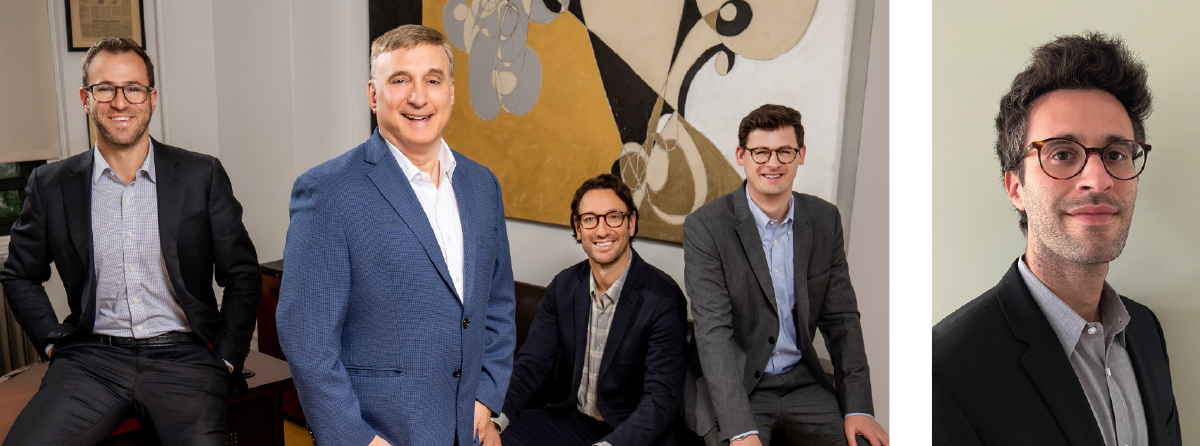Alumni | IN THE FIELD
How Five Alumni Landed at One Boutique Entertainment Law Firm

“Generally, there’s no litmus test that if you’re from Brooklyn Law you have better odds of working here,” said Fields, whose two founding partners must also agree on new hires. “But personally, when someone from Brooklyn Law ends up working with us, I like it because I love the Law School; I had a great experience there.”
Other alumni are new partners Cody Brown ’13 and Dan Zupnick ’12; a 2019 Brooklyn Law Entertainment and Sports Law Society alumni honoree, Jason Barth ’13, who went from of counsel to full time; and William H. Williams ’20.
CONTENT DEMAND FUELS ENTERTAINMENT LAW BUSINESS
The pandemic saw entertainment production slow initially, but then demand for content and RLF’s services rose briskly, and in sync. “Any show, movie, podcast, or song you enjoy, many legal transactions took place behind the scenes to get the final product to the consumer,” Fields said.
One recent growth area is music catalog acquisitions. As streaming alone may not be lucrative for most musicians and songwriters, these artists can seek revenue from music publishers and labels acquiring their music publishing and master recording catalogs. Institutional investors have gotten involved, placing bets on the next big music sensations.
“A big pop song could make a few million dollars a year in streams and public performances, so our clients, sometimes backed by private equity, will pay a multiple based on the annual income of a song, among other factors. It’s a really nice payday for the artists,” Brown said.
Music is not the only industry benefiting from new paradigms. Technology has allowed video and audio content produced by small teams or soloists to thrive, with the podcast industry as the breakout performer of the past several years.
RLF works with several chart-topping podcasts, and advises traditional media companies behind the scenes.
“The successful shows can become their own businesses, which may require engaging hosts, writers, producers, and guests, as well as securing a distribution deal,” Brown said, adding that podcasts of any size still need the “same legal protections in place, getting clearance for participants, music, and distribution deals. That’s where we come in.”
NETWORKING, PROXIMITY, AND PERSONALITY
“That makes a difference when we decide who we’re going to interview,” said Fields. His own first internship was at Columbia Pictures, where in-house lawyers advised him to learn entertainment law at a big law firm. He did so, and ultimately joined what is now RLF.
Networking is also key, and Fields always talks to students referred by Professor of Law Michael Gerber, a favorite professor and super-connector. Zupnick earned a meeting with Fields after mentioning Brooklyn Law in an email and has been at the firm 10 years. The latest addition, Williams, first met partners Brown and Zupnick at a Law School lunch-and-learn event, and periodically reintroduced himself at alumni dinners or intellectual property events.
Brown said he’s always happy to give students five minutes on the phone, with some guardrails. “Check in every six months with just a friendly hello,” Brown said. Williams, who sought a transition from civil litigation to entertainment law, happened to reach out just as an RLF associate was leaving. “He met with the rest of the team, and everyone loved him,” Brown said.
Skilled conversationalists who can hold their own with “creative economy” clients, be they producers, creators, distributors, or financiers, fare well at RLF, Fields said.
“You can have the best grades and have gone to Harvard, but if you interview here and you’re not lively and don’t have a personality, it won’t work,” Fields said.